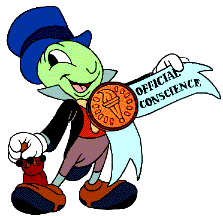Dear Parishioners,
I hope that you have been taught somewhere along the line that you are supposed to follow your conscience. This is absolutely true. However, in the process we have an obligation to be sure that our consciences are rightly formed.
In our society, it appears that we often base things on opinion polls and/or a type of moral relativity—the way that I feel about a particular thing. In other words, things become pretty subjective. I may think that something is bad while you think that it is okay. With this manner of moral decision making, my truth becomes just as valid as your truth. Who then is right?
Catholic morality is not based on subjective opinions but rather objective truth. Just because many people may think that something is acceptable in today’s society, it does not mean that it is morally acceptable in God’s judgment.
Let me give you a practical example. Premarital or extramarital sex has become widely accepted in our culture. It is displayed and encouraged on the TV, in the movies, in novels, etc. “Everybody does it!” “If it feels so good, how can it be wrong?” Yet, the Church continues to teach that every sexual act or genital expression outside of the context of marriage is morally wrong. Without getting into the many reasons why this is so, suffice it to say that one of the primary reasons for intercourse is to create new life and to engage in this act outside of marriage leaves open the possibility that children will be created in an environment other than the family unit.
What then is this conscience that we are supposed to follow? Conscience is not a thing or an object but rather a judgment. It is the last practical judgment concerning the goodness or badness of a human act to be performed here and now. It is our ability to make sound decisions or judgments based on objective moral truth.
In order to properly form our consciences (to make the best possible moral judgments), we have to do some homework. Initially, we have to be sure that we find out exactly what the Church teaches on certain issues and why it teaches it. The Catechism of the Catholic Church is a good reference book to use as a starting point. Judgments on particular moral issues by the Church are prayerfully determined by referring to the Sacred Scriptures, to the writings of the Church Fathers and Saints, to the Magisterium of the Church, etc. Often moral determinations employ an in-depth investigation of the natural law and both natural and social sciences involved with any issues.
I find too often that numerous Catholics in particular have limited learning about the faith—including various contemporary moral issues—because little or no continuing education takes place. We should continue to learn until the day we die. If a CCD education or elementary / high school Catholic education is where we stopped our formal education in the faith, then I guess that we do not always have the best tools to tackle the complexities of today’s moral issues. We can rely on a blind obedience to the Church but it is always best to try to understand and to incorporate the rationale of the Church’s teaching into our own decision making.
Simply stated, we need to be sure that our consciences are rightly formed (guided by authentic Church teaching) and then follow them.
Fr. Ed Namiotka
Pastor

No comments:
Post a Comment